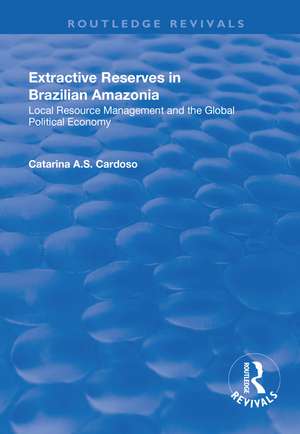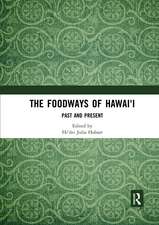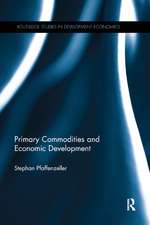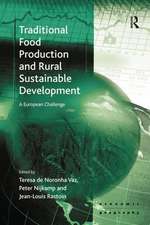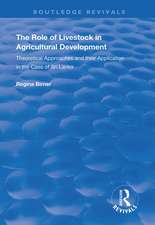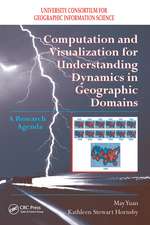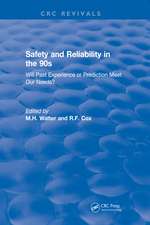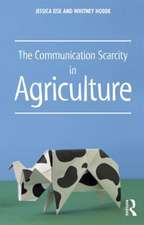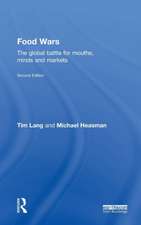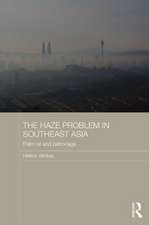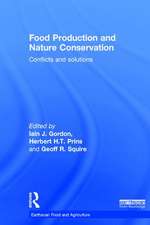Extractive Reserves in Brazilian Amazonia: Local Resource Management and the Global Political Economy: Routledge Revivals
Autor Catarina A.S. Cardosoen Limba Engleză Paperback – 31 oct 2019
| Toate formatele și edițiile | Preț | Express |
|---|---|---|
| Paperback (1) | 217.22 lei 6-8 săpt. | |
| Taylor & Francis – 31 oct 2019 | 217.22 lei 6-8 săpt. | |
| Hardback (1) | 628.93 lei 6-8 săpt. | |
| Taylor & Francis – 22 noi 2017 | 628.93 lei 6-8 săpt. |
Din seria Routledge Revivals
- 9%
 Preț: 801.69 lei
Preț: 801.69 lei - 8%
 Preț: 432.15 lei
Preț: 432.15 lei -
 Preț: 153.81 lei
Preț: 153.81 lei -
 Preț: 230.80 lei
Preț: 230.80 lei -
 Preț: 294.72 lei
Preț: 294.72 lei -
 Preț: 258.66 lei
Preț: 258.66 lei - 9%
 Preț: 764.34 lei
Preț: 764.34 lei - 9%
 Preț: 903.41 lei
Preț: 903.41 lei -
 Preț: 296.10 lei
Preț: 296.10 lei -
 Preț: 342.36 lei
Preț: 342.36 lei - 9%
 Preț: 606.35 lei
Preț: 606.35 lei -
 Preț: 317.54 lei
Preț: 317.54 lei - 9%
 Preț: 764.28 lei
Preț: 764.28 lei -
 Preț: 256.94 lei
Preț: 256.94 lei -
 Preț: 238.40 lei
Preț: 238.40 lei -
 Preț: 259.47 lei
Preț: 259.47 lei - 9%
 Preț: 903.80 lei
Preț: 903.80 lei -
 Preț: 326.26 lei
Preț: 326.26 lei -
 Preț: 258.66 lei
Preț: 258.66 lei -
 Preț: 294.97 lei
Preț: 294.97 lei -
 Preț: 308.89 lei
Preț: 308.89 lei -
 Preț: 199.85 lei
Preț: 199.85 lei -
 Preț: 347.49 lei
Preț: 347.49 lei -
 Preț: 295.04 lei
Preț: 295.04 lei -
 Preț: 382.23 lei
Preț: 382.23 lei -
 Preț: 258.66 lei
Preț: 258.66 lei -
 Preț: 343.21 lei
Preț: 343.21 lei - 9%
 Preț: 640.90 lei
Preț: 640.90 lei - 9%
 Preț: 619.48 lei
Preț: 619.48 lei -
 Preț: 228.88 lei
Preț: 228.88 lei -
 Preț: 257.67 lei
Preț: 257.67 lei -
 Preț: 245.10 lei
Preț: 245.10 lei -
 Preț: 258.52 lei
Preț: 258.52 lei -
 Preț: 258.72 lei
Preț: 258.72 lei -
 Preț: 368.93 lei
Preț: 368.93 lei -
 Preț: 246.37 lei
Preț: 246.37 lei - 9%
 Preț: 832.07 lei
Preț: 832.07 lei -
 Preț: 258.66 lei
Preț: 258.66 lei -
 Preț: 286.98 lei
Preț: 286.98 lei - 18%
 Preț: 695.85 lei
Preț: 695.85 lei - 9%
 Preț: 934.94 lei
Preț: 934.94 lei - 5%
 Preț: 231.22 lei
Preț: 231.22 lei -
 Preț: 267.15 lei
Preț: 267.15 lei -
 Preț: 200.66 lei
Preț: 200.66 lei - 9%
 Preț: 638.61 lei
Preț: 638.61 lei -
 Preț: 259.68 lei
Preț: 259.68 lei - 9%
 Preț: 1038.45 lei
Preț: 1038.45 lei -
 Preț: 389.43 lei
Preț: 389.43 lei -
 Preț: 302.13 lei
Preț: 302.13 lei -
 Preț: 294.72 lei
Preț: 294.72 lei
Preț: 217.22 lei
Preț vechi: 259.26 lei
-16% Nou
Puncte Express: 326
Preț estimativ în valută:
41.57€ • 43.49$ • 34.53£
41.57€ • 43.49$ • 34.53£
Carte tipărită la comandă
Livrare economică 02-16 aprilie
Preluare comenzi: 021 569.72.76
Specificații
ISBN-13: 9781138737822
ISBN-10: 1138737828
Pagini: 274
Dimensiuni: 152 x 219 x 16 mm
Greutate: 0.51 kg
Ediția:1
Editura: Taylor & Francis
Colecția Routledge
Seria Routledge Revivals
Locul publicării:Oxford, United Kingdom
ISBN-10: 1138737828
Pagini: 274
Dimensiuni: 152 x 219 x 16 mm
Greutate: 0.51 kg
Ediția:1
Editura: Taylor & Francis
Colecția Routledge
Seria Routledge Revivals
Locul publicării:Oxford, United Kingdom
Cuprins
Contents: Introduction; The conceptual framework: common property institutions; National and international developments: their impact on Brazilian Amazonia and its people; The rubber tappers and the development of extractive reserves; Conserving the forest in extractive reserves: an assessment of their legislative framework and external support; A common property institution in practice: the extractive reserve Chico Mendes; The interaction of local, national and international factors in the sustainability of common resources; Supporting local resource management; Bibliography.
Recenzii
’Catarina Cardoso has produced an innovative, insightful and critical analysis of Brazil’s extractive reserves, now a major instrument of conservation policy in Amazonia. It will make a stimulating read for all those interested in the role of environmental policy in protecting tropical rain forests for national and global benefit.’ Anthony Hall, London School of Economics and Political Science, UK ’The value of Catarina Cardoso’s book is that she provides telling examples of what works and what does not work, in Amazonian development. This is a case study at the global scale...’ Professor Michael Redclift, Kings College London, UK 'This book is a must for all those involved in the Amazon forest: researchers, planners, policy-makers and the interested public. Its interesting research approach makes it most usable for classes on interdisciplinary aspects of interactions between humans and their environment.' International Journal of Sustainable Development
Notă biografică
Catarina A.S. Cardoso is a lecturer in Economics and Development at the University of Westminster and has worked as an independent consultant for NGOs and other organisations since 1999. She has conducted extensive field research in Brazil, involving long visits to the forests of the rubber tappers.
Descriere
This title was first published in 2003: Despite their growing political significance, the linkages between local resource management and the global political economy are often poorly understood. This book addresses these linkages in a grounded analysis of extractive reserves: areas in Brazil set aside for local populations who depend on natural resources for their livelihood.
